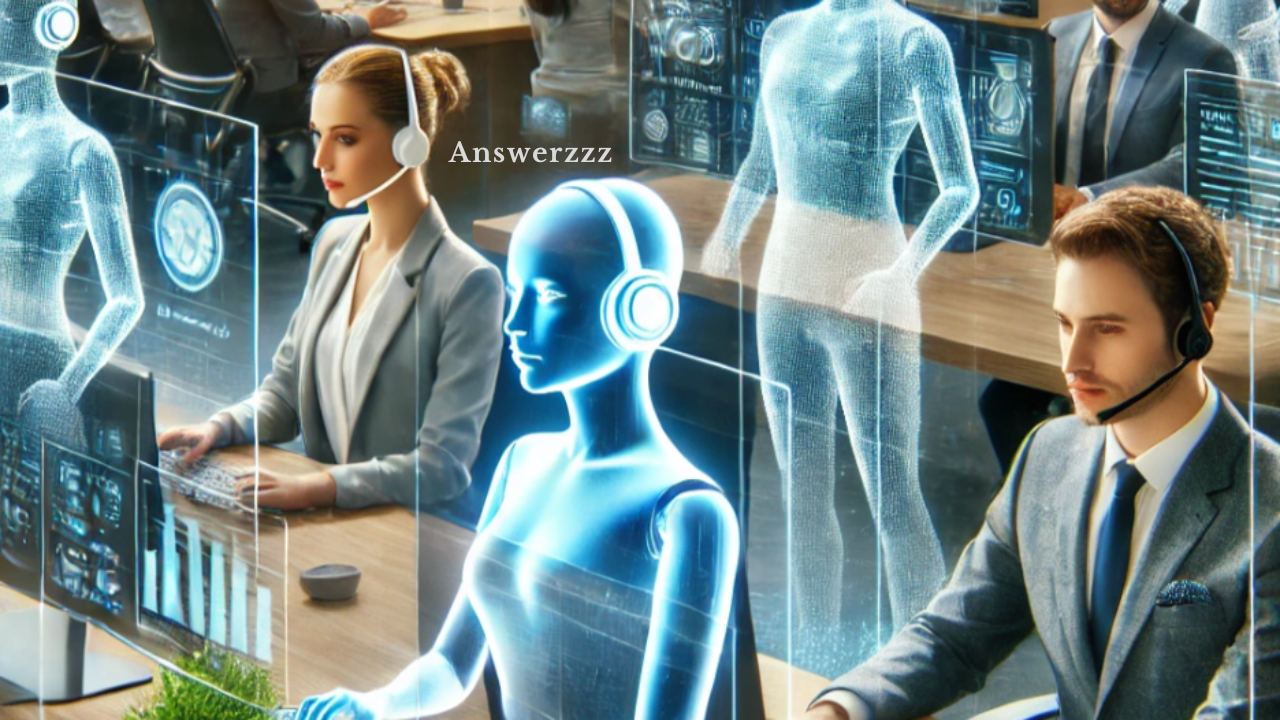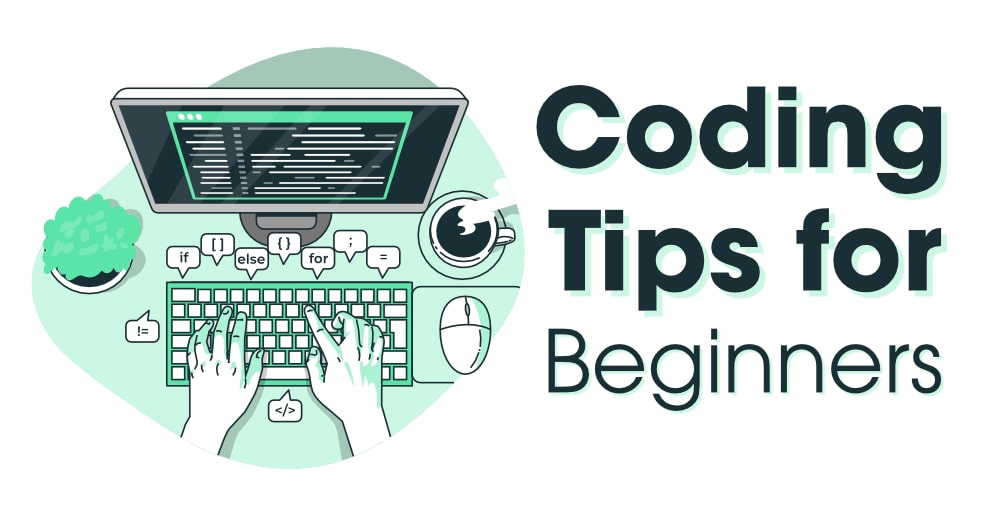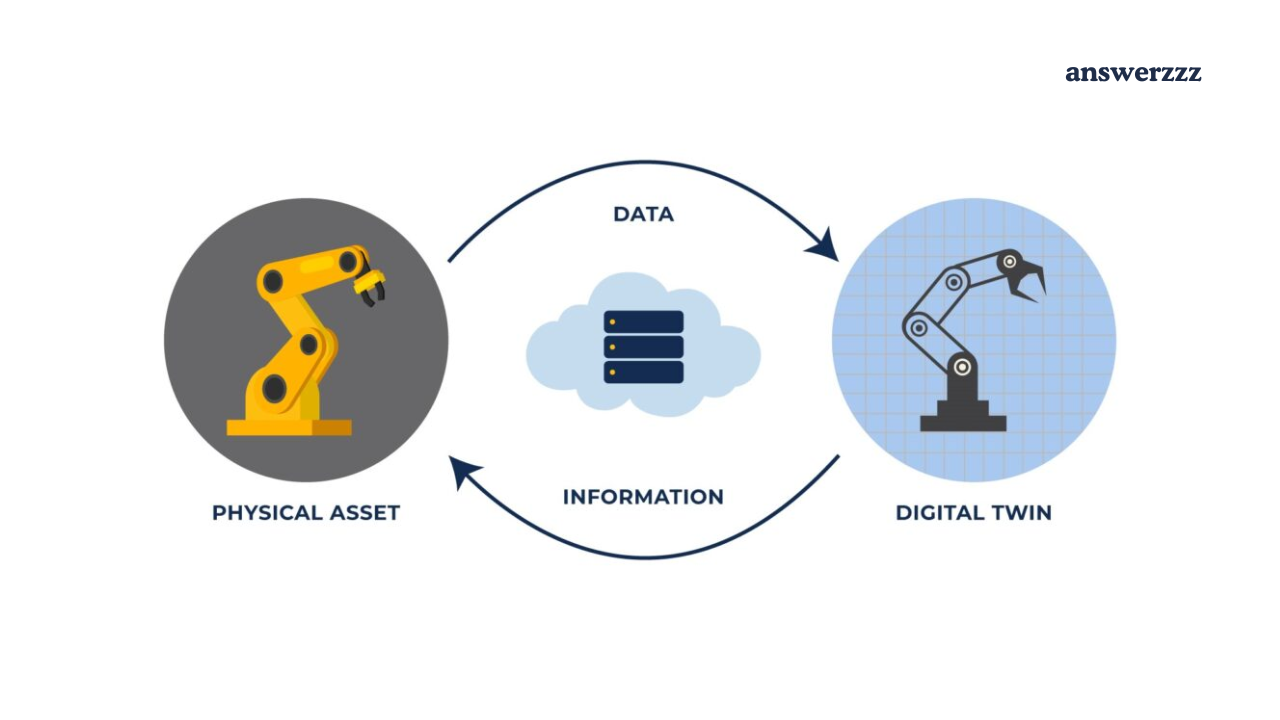The integration of artificial intelligence (AI) into the workplace has seen a rapid rise, with AI-powered assistants playing a critical role in transforming traditional office environments. These virtual assistants, capable of streamlining tasks, analyzing data, and enhancing productivity, are now indispensable tools for many industries. As we look toward the future, AI assistants will become even more advanced, supporting a wide range of roles and functions. This article explores the anticipated evolution of AI assistants, the impacts they will have on workplace efficiency, and the potential challenges and ethical considerations associated with their widespread adoption.
The Evolution of AI Assistants: From Simple Automation to Advanced Decision-Making

AI assistants have evolved significantly from simple chatbots and rule-based systems to complex tools that can understand natural language, provide insights, and assist in decision-making. In the past, AI systems were limited to basic automation, performing repetitive tasks that required little context. However, with advances in machine learning, natural language processing (NLP), and data analysis, AI assistants are now capable of handling more sophisticated tasks. They can assist in strategic planning, analyze large datasets, and even make recommendations based on real-time information. This shift from automation to intelligent decision-making is set to redefine the role of AI assistants in the workplace, transforming them from passive tools to active collaborators.
Enhancing Productivity and Efficiency Through AI-Powered Automation
One of the most promising aspects of AI assistants is their ability to improve productivity and efficiency. By automating routine tasks, AI can free up employees to focus on higher-value activities. For instance, AI assistants can handle scheduling, manage emails, and sort through large volumes of information, ensuring that employees spend less time on administrative tasks. In industries like finance, AI-powered tools can assist in data analysis, report generation, and compliance monitoring. This level of automation not only saves time but also reduces human error, allowing for a more streamlined and efficient workflow. As AI technology continues to improve, the potential for productivity gains will only increase.
Improving Communication and Collaboration with AI Assistants
AI assistants are also enhancing communication and collaboration within teams. Through NLP and advanced algorithms, these assistants can facilitate more efficient information sharing, organize meetings, and even summarize conversations. In remote work environments, AI can be invaluable in bridging communication gaps. For example, AI-powered transcription services can provide real-time notes during virtual meetings, allowing team members to focus on the discussion rather than taking notes. Additionally, AI assistants can analyze communication patterns to suggest optimal times for meetings, help balance workloads across teams, and even identify potential bottlenecks in project workflows.
Personalized Support and Task Management
A key area of development for AI assistants is personalized support. As AI systems learn from user interactions, they become better at anticipating individual needs, providing customized reminders, and managing personalized workflows. For instance, an AI assistant could prioritize tasks based on a user’s preferences, schedule breaks to improve productivity and remind users of deadlines well in advance. In sales or customer service, AI assistants can analyze past interactions to offer personalized recommendations, helping employees tailor their approach to specific clients. This level of personalization not only improves efficiency but also enhances the overall user experience, making AI assistants essential tools for task management in the future workplace.
Enhancing Customer Service and Support with AI
In customer service, AI assistants have already made a substantial impact by improving response times and delivering more consistent service. AI-driven chatbots and virtual agents can handle a significant volume of customer inquiries, often resolving issues without the need for human intervention. Future developments in AI will likely make these assistants even more capable, allowing them to handle complex queries, understand nuanced language, and offer personalized solutions. As a result, businesses will be able to provide 24/7 customer support, meet growing consumer expectations, and reduce the workload on human agents. This shift towards AI-powered customer service will be especially beneficial for industries such as retail, healthcare, and finance.
Data Analysis and Predictive Insights
AI assistants are increasingly being used for data analysis, offering valuable insights that can guide strategic decisions. Advanced AI systems can analyze large volumes of data in real time, identify trends, and make predictions about future outcomes. For example, in marketing, AI can analyze customer data to suggest personalized campaigns or forecast sales trends. In healthcare, AI can assist in patient diagnostics by analyzing medical data and flagging potential health issues. By providing predictive insights, AI assistants empower businesses to make data-driven decisions, leading to improved efficiency and competitive advantage. As AI technology advances, these predictive capabilities will become more accurate, making AI an indispensable tool for data analysis in the workplace.
Supporting Innovation and Creativity
One often-overlooked benefit of AI assistants is their potential to support innovation and creativity. By taking over mundane tasks, AI allows employees more time and mental space to focus on creative problem-solving. Additionally, AI systems can provide insights that spark new ideas, assist in brainstorming sessions, and even suggest improvements to products or processes. For instance, in fields like product design, AI can analyze customer feedback to suggest enhancements, or in advertising, AI can provide data-driven insights that inspire more effective campaigns. By fostering an environment that encourages creativity, AI assistants can help drive innovation across various industries.
Ethical and Privacy Considerations in AI Deployment
While the benefits of AI assistants are significant, their deployment also raises ethical and privacy concerns. As AI systems collect and analyze vast amounts of data, questions about data privacy, consent, and security become paramount. For instance, AI assistants that handle personal data, such as medical or financial information, must adhere to strict privacy standards to prevent misuse. Additionally, the use of AI in decision-making processes raises ethical concerns, particularly when AI algorithms are used in hiring or performance evaluations. Ensuring that AI systems operate transparently, fairly, and securely will be critical as their role in the workplace expands.

Addressing Job Displacement and Workforce Transition
The rise of AI assistants has raised concerns about job displacement, as automation and AI-driven tools take over tasks traditionally performed by humans. Certain administrative roles, for instance, are increasingly being automated, leading to fears of job loss. However, AI adoption also creates new roles that require specialized skills, such as AI management, data analysis, and ethical oversight. To mitigate the impact of AI on employment, organizations must invest in reskilling programs, enabling workers to transition into roles that require human creativity, empathy, and strategic thinking. By preparing the workforce for an AI-driven future, companies can foster a positive transition that benefits both employees and employers.
Future AI Assistants as Collaborative Team Members
In the future, AI assistants are expected to evolve into collaborative team members, participating actively in meetings, contributing ideas, and even managing projects. Advanced AI systems could work alongside human teams, offering real-time suggestions, tracking project milestones, and providing feedback. For example, in software development, AI assistants might help developers by suggesting code improvements, identifying bugs, or providing feedback on user experience. This collaborative role will shift the perception of AI from being a mere tool to becoming an integral part of the team, transforming the way employees interact with technology in the workplace.
The Role of AI Assistants in Remote and Hybrid Work Models
As remote and hybrid work models become more common, AI assistants will play an increasingly important role in ensuring productivity and connectivity. AI tools can help remote workers stay organized, manage tasks, and maintain communication with team members. For instance, AI-driven project management tools can keep track of deadlines, allocate resources, and monitor progress, even when teams are distributed across different time zones. Additionally, AI assistants can analyze productivity patterns and suggest ways to improve work-life balance, which is especially valuable in remote work settings. As companies continue to adopt flexible work arrangements, AI will be instrumental in maintaining efficiency and fostering collaboration.

Preparing for the Future: Training and Upskilling
As AI assistants become more embedded in workplace processes, there will be a growing need for training and upskilling programs to ensure employees can effectively work alongside AI. Understanding how to leverage AI tools, interpret AI-driven insights, and address AI-generated recommendations will be essential skills for the modern workforce. Moreover, with the increasing integration of AI in decision-making processes, employees will need to be aware of the limitations of AI and exercise judgment when using AI-generated insights. Investing in training programs will empower workers to maximize the benefits of AI, ultimately leading to a more efficient and agile workplace.
Embracing the AI-Driven Workplace of the Future
The future of AI assistants in the workplace holds immense potential for transforming how we work, communicate, and make decisions. As these technologies continue to advance, they will become more capable, intuitive, and indispensable. By automating routine tasks, enhancing communication, supporting data-driven decision-making, and even fostering creativity, AI assistants will shape a more productive and innovative workplace. However, as we embrace these advancements, it is essential to address ethical, privacy, and workforce transition challenges, ensuring that AI enhances rather than disrupts the human experience. With thoughtful implementation and a commitment to responsible AI, organizations can unlock the full potential of AI assistants, paving the way for a future where humans and AI work hand-in-hand.



